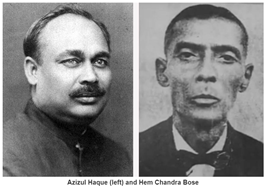

22nd August 2022 (6 Topics)
Context
India has inaugurated a National Automated Fingerprint Identification System, a centralised database of fingerprints.
Background
Historical Background:
- A system of fingerprinting identification first emerged in colonial India, where it was tested before it spread to Europe and beyond.
- William Herschel, the chief administrator of the Hooghly district of Bengal, from the late-middle 1800s onwards, used fingerprinting to reduce fraud and forgeries, in order to ensure that the correct person was receiving government pensions, signing land transfer deeds, and mortgage bonds.
- The uniqueness of every individual’s fingerprints was first proposed in Europe by the German anatomist Johann Mayer in 1788.
- It was confirmed through detailed studies by the Scottish doctor Henry Faulds. However, Herschel had begun to implement fingerprinting as a means of identification in Bengal around the same time.
- The Bengal Police were able to create fingerprint records which replaced the use of anthropometric measurements by 1897.
- The first ever Finger Print Bureau in the world was established at Writer's Building at Calcutta in 1897.
Establishment of Central Finger Print Bureau (CFPB):
- The Central Finger Print Bureau (CFPB) came into being in 1955 in Calcutta under the administrative control of the Intelligence Bureau.
- In 1973 the administrative control was transferred to CBI and it was in 1986 that the CFPB was finally placed under the administrative control of the newly formed National Crime Records Bureau.
|
Do You Know?
|

Automated Fingerprint Identification System:
- The Indian Version of Automated Fingerprint Identification System (AFIS) is called FACTS, which was co-developed, by NCRB and CMC
- The current version of FACTS is 5.0. The system uses Image Processing and Pattern Recognition technique to capture, encode, store and match fingerprints, including comparison of chance prints.
- It uses pattern class, core and delta information, minutiae location, direction, neighbouring information, ridge counts and distances, density, type, print background/foreground information etc. for matching Finger Prints.
- Apart from the above details, FACTS also stores non-fingerprint information or demographic details like gender, region and conviction details.
- According to a 2018 report by the NCRB, this latest iteration, FACTS 5.0, which was upgraded in 2007, was considered to have “outlived its shelf life” and thus needed to be replaced by NAFIS.
National Automated Fingerprints Identification System (NAFIS):
- The NAFIS project is a country-wide searchable database of crime and criminal-related fingerprints.
- This web-based application functions as a central information repository by consolidating fingerprint data from all states and Union Territories.
- According to a 2020 report by the NCRB, it enables law enforcement agencies to upload, trace, and retrieve data from the database in real time on a 24×7 basis.
- NAFIS assigns a unique 10-digit National Fingerprint Number (NFN) to each person arrested for a crime.
- This unique ID will be used for the person’s lifetime, and different crimes registered under different FIRs will be linked to the same NFN
More Articles


